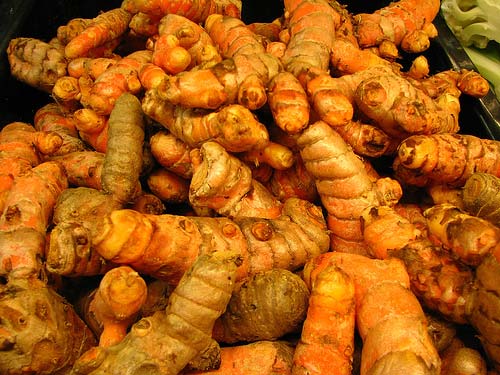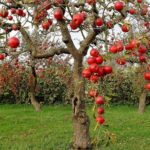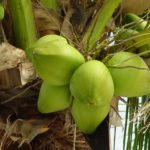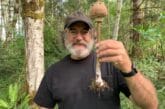Turmeric grows wild in the forests of South and Southeast Asia and has been used in healing for 2,500 years. Aside from the holistic health community, Western medical practitioners have only recently come on board with a host of scientific studies that recognize the benefits of turmeric.


Science Confirms Turmeric As Effective As 14 Drugs
By Sayer Ji, Published in GreenMedInfo
Turmeric is one the most thoroughly researched plants in existence today. Its medicinal properties and components (primarily curcumin) have been the subject of over 5,600 peer-reviewed and published biomedical studies. In fact, our five-year long research project on this sacred plant has revealed over 600 potential preventive and therapeutic applications, as well as 175 distinct beneficial physiological effects.
Turmeric has played an important role in both Buddhist and Hindu spiritualism. Because of its yellow-orange coloring, turmeric was associated with the sun or Vishnu in the mythology of Hinduism. Yellow is the color of the solar plexus chakra, which in traditional Indian medicine is the energy center relating to the metabolic and digestive systems. Orange is the color of the sacral chakra, and tied to the reproductive system.
Given the sheer density of research performed on this remarkable spice, it is no wonder that a growing number of studies have concluded that it compares favorably to a variety of conventional medications, including:
- Lipitor/Atorvastatin(cholesterol medication): A 2008 study published in the journal Drugs in R & D found that a standardized preparation of curcuminoids from Turmeric compared favorably to the drug atorvastatin (trade name Lipitor) on endothelial dysfunction, the underlying pathology of the blood vessels that drives atherosclerosis, in association with reductions in inflammation and oxidative stress in type 2 diabetic patients. [i] [For addition curcumin and ‘high cholesterol’ research – 8 abstracts]
- Corticosteroids (steroid medications): A 1999 study published in the journal Phytotherapy Research found that the primary polyphenol in turmeric, the saffron colored pigment known as curcumin, compared favorably to steroids in the management of chronic anterior uveitis, an inflammatory eye disease.[ii] A 2008 study published in Critical Care Medicine found that curcumin compared favorably to the corticosteroid drug dexamethasone in the animal model as an alternative therapy for protecting lung transplantation-associated injury by down-regulating inflammatory genes.[iii] An earlier 2003 study published in Cancer Letters found the same drug also compared favorably to dexamethasone in a lung ischaemia-repurfusion injury model.[iv] [for additional curcumin and inflammation research – 52 abstracts]
- Prozac/Fluoxetine & Imipramine (antidepressants): A 2011 study published in the journal Acta Poloniae Pharmaceutica found that curcumin compared favorably to both drugs in reducing depressive behavior in an animal model.[v] [for additional curcumin and depression research – 5 abstracts]
- Aspirin (blood thinner): A 1986 in vitro and ex vivo study published in the journal Arzneimittelforschung found that curcumin has anti-platelet and prostacyclin modulating effects compared to aspirin, indicating it may have value in patients prone to vascular thrombosis and requiring anti-arthritis therapy.[vi] [for additional curcumin and anti-platelet research]
- Anti-inflammatory Drugs: A 2004 study published in the journal Oncogene found that curcumin (as well as resveratrol) were effective alternatives to the drugs aspirin, ibuprofen, sulindac, phenylbutazone, naproxen, indomethacin, diclofenac, dexamethasone, celecoxib, and tamoxifen in exerting anti-inflammatory and anti-proliferative activity against tumor cells.[vii] [for additional curcumin and anti-proliferative research – 15 abstracts]
- Oxaliplatin (chemotherapy drug): A 2007 study published in the International Journal of Cancer found that curcumin compares favorably with oxaliplatin as an antiproliferative agenet in colorectal cell lines.[viii] [for additional curcumin and colorectal cancer research – 52 abstracts]
- Metformin (diabetes drug): A 2009 study published in the journal Biochemitry and Biophysical Research Community explored how curcumin might be valuable in treating diabetes, finding that it activates AMPK (which increases glucose uptake) and suppresses gluconeogenic gene expression (which suppresses glucose production in the liver) in hepatoma cells. Interestingly, they found curcumin to be 500 times to 100,000 times (in the form known as tetrahydrocurcuminoids(THC)) more potent than metformin in activating AMPK and its downstream target acetyl-CoA carboxylase (ACC). [ix]
In many North Indian traditional wedding ceremonies, haldi (turmeric) is applied to the groom and the bride, not only to make them look good with fresh glowing skin, but to ward off the evil eye. It is considered by the Hindus as a symbol of prosperity and as a cleansing herb for the whole body. Pieces of crushed roots mixed with seawater are sprinkled to remove the negative influences from places, persons, and things during ceremonies. — MedIndia


Another way in which turmeric and its components reveal their remarkable therapeutic properties is in research on drug resistant- and multi-drug resistant cancers. We have two sections on our site dedicated to researching natural and integrative therapies on these topics, and while there are dozens of substances with demonstrable efficacy against these chemotherapy- and radiation-resistant cancers, curcumin tops both lists:
When combined with cauliflower, Turmeric has shown to prevent prostate cancer and stop the growth of existing prostate cancer. It may prevent and slow the progression of Alzheimer’s disease by removing amyloid plaque buildup in the brain. It is a potent natural anti-inflammatory that works as well as many anti-inflammatory drugs but without the side effects. May help in the treatment of psoriasis and other inflammatory skin conditions. — Eat This!
We have found no less than 54 studies indicating that curcumin can induce cell death or sensitize drug-resistant cancer cell lines to conventional treatment.[x]
We have identified 27 studies on curcumin’s ability to either induce cell death or sensitize multi-drug resistant cancer cell lines to conventional treatment.[xi]
Considering how strong a track record turmeric (curcumin) has, having been used as both food and medicine in a wide range of cultures, for thousands of years, a strong argument can be made for using curcumin as a drug alternative or adjuvant in cancer treatment.
Or, better yet, use certified organic (non-irradiated) turmeric in lower culinary doses on a daily basis so that heroic doses won’t be necessary later in life after a serious disease sets in. Nourishing yourself, rather than self-medicating with “nutraceuticals,” should be the goal of a healthy diet.
Sayer Ji is the founder and chair of GreenMedInfo.com. His writings have been published in the Wellbeing Journal, the Journal of Gluten Sensitivity, and have been featured on numerous websites.
Resources
- [i] P Usharani, A A Mateen, M U R Naidu, Y S N Raju, Naval Chandra. Effect of NCB-02, atorvastatin and placebo on endothelial function, oxidative stress and inflammatory markers in patients with type 2 diabetes mellitus: a randomized, parallel-group, placebo-controlled, 8-week study. Drugs R D. 2008;9(4):243-50. PMID: 18588355
- [ii] B Lal, A K Kapoor, O P Asthana, P K Agrawal, R Prasad, P Kumar, R C Srimal. Efficacy of curcumin in the management of chronic anterior uveitis. Phytother Res. 1999 Jun;13(4):318-22. PMID: 10404539
- [iii] Jiayuan Sun, Weigang Guo, Yong Ben, Jinjun Jiang, Changjun Tan, Zude Xu, Xiangdong Wang, Chunxue Bai. Preventive effects of curcumin and dexamethasone on lung transplantation-associated lung injury in rats. Crit Care Med. 2008 Apr;36(4):1205-13. PMID: 18379247
- [iv] J Sun, D Yang, S Li, Z Xu, X Wang, C Bai. Effects of curcumin or dexamethasone on lung ischaemia-reperfusion injury in rats. Cancer Lett. 2003 Mar 31;192(2):145-9. PMID: 18799504
- [v] Jayesh Sanmukhani, Ashish Anovadiya, Chandrabhanu B Tripathi. Evaluation of antidepressant like activity of curcumin and its combination with fluoxetine and imipramine: an acute and chronic study. Acta Pol Pharm. 2011 Sep-Oct;68(5):769-75. PMID: 21928724
- [vi] R Srivastava, V Puri, R C Srimal, B N Dhawan. Effect of curcumin on platelet aggregation and vascular prostacyclin synthesis. Arzneimittelforschung. 1986 Apr;36(4):715-7. PMID: 3521617
- [vii] Yasunari Takada, Anjana Bhardwaj, Pravin Potdar, Bharat B Aggarwal. Nonsteroidal anti-inflammatory agents differ in their ability to suppress NF-kappaB activation, inhibition of expression of cyclooxygenase-2 and cyclin D1, and abrogation of tumor cell proliferation. Oncogene. 2004 Dec 9;23(57):9247-58. PMID: 15489888
- [viii] Lynne M Howells, Anita Mitra, Margaret M Manson. Comparison of oxaliplatin- and curcumin-mediated antiproliferative effects in colorectal cell lines. Int J Cancer. 2007 Jul 1;121(1):175-83. PMID: 17330230
- [ix] Teayoun Kim, Jessica Davis, Albert J Zhang, Xiaoming He, Suresh T Mathews. Curcumin activates AMPK and suppresses gluconeogenic gene expression in hepatoma cells. Biochem Biophys Res Commun. 2009 Oct 16;388(2):377-82. Epub 2009 Aug 8. PMID: 19665995
Source: RealFarmacy
Updated 10 February 2021













I truly do trust every one of the methods you could have introduced with your post. They may be really effective all of which will undoubtedly get the job done. Even so, this blogposts are extremely speedy for novices. Might just you desire increase these a little out of next occasion? Basically publish.
I like this post, enjoyed this one thank you for putting up. No man is wise enough by himself. by Titus Maccius Plautus.
Pingback: The Magic Healing Vaccine: Vitamin C | WilderUtopia.com
Pingback: Benefits of Coconut Oil Versus the Detractors | WilderUtopia.com